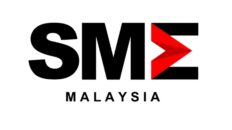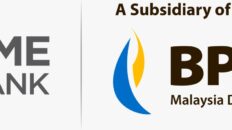KUALA LUMPUR, 26 May 2025 – As Malaysia moves forward with its phased nationwide e-invoicing rollout, a new whitepaper by global small business platform Xero reveals that many small and medium enterprises (SMEs) remain underprepared and are in urgent need of support to meet upcoming compliance deadlines.
According to the Inland Revenue Board of Malaysia (LHDN), all businesses will be required to transition fully to e-invoicing by specific dates: 1 July 2025 for businesses with annual revenues between RM500,000 and RM25 million, and 1 January 2026 for those earning RM150,000 to RM500,000.
However, Xero’s whitepaper, From Awareness to Implementation: Assessing E-Invoicing Readiness Among SMEs in Malaysia, highlights a concerning readiness gap. Only 30% of SMEs report having a full understanding of what e-invoicing involves, while just 31% have successfully integrated it into their operations. Alarmingly, 19% have yet to begin implementation.
Key Challenges Hindering Progress
The report identifies several barriers slowing e-invoicing adoption among SMEs. A lack of clear understanding of regulatory requirements emerged as the top challenge, cited by 55% of respondents. Other major concerns included the need to digitise large volumes of data (49%), data security and privacy issues (47%), and limited in-house technical capabilities (45%).
Despite these hurdles, Malaysian SMEs remain largely optimistic. Nearly 70% believe that e-invoicing will bring tangible business benefits, with improved recordkeeping (72%), greater efficiency (67%), and better compliance (55%) ranking as the most anticipated advantages.
“Many business owners understand that change is coming, but they are overwhelmed by complexity, unsure of where to start, and concerned about doing it right,” said Koren Wines, Managing Director of Xero Asia. “The good news is that they acknowledge the benefits e-invoicing offers their businesses and are open and optimistic to act if the process is made easier.”
What SMEs Need Most
To help accelerate adoption, SMEs are calling for practical, accessible support. The top resources identified include step-by-step guides or checklists (70%), support for integration with existing systems (59%), and recommendations for trusted e-invoicing solutions (53%).
The whitepaper also reveals that implementation experiences differ significantly based on SME size and capacity. Larger SMEs (earning closer to RM25 million) are more confident in their ability to meet the e-invoicing mandate, with 65% expressing confidence compared to just 57% of smaller SMEs. Bigger firms are also more likely to have dedicated implementation teams or a hybrid mix of internal and external resources. In contrast, smaller businesses tend to rely on business owners or lean teams of two or fewer.
While both groups struggle with understanding the mandate, their secondary concerns diverge. Smaller SMEs cite lack of time as a critical issue, while larger SMEs are more concerned about the scale of data they need to digitise.
Different Priorities, Shared Benefits
Although priorities differ, both small and large SMEs recognise the strategic advantages of transitioning to e-invoicing. Smaller SMEs focus on immediate gains like improved compliance, reduced errors, and quicker payments. Larger SMEs, meanwhile, emphasise broader operational efficiency.
“The e-invoicing mandate is an opportunity for Malaysia’s SMEs to accelerate their digital transformation journeys,” Wines added. “With guidance and support from accountants, bookkeepers, and business advisors, SMEs can not only navigate compliance but also unlock tools that drive efficiency and productivity.”
“Particularly for smaller businesses operating with lean resources, simple, cost-effective, and easy-to-use solutions will be key. Once SMEs bridge the gap and fully implement e-invoicing, they will begin to see clear benefits—improved cash flow, operational savings, and better business outcomes overall.”
About the survey
This survey was commissioned by Xero and conducted by a third-party market research agency. The final sample comprised 500 respondents whose roles include owners, finance personnel or those involved in e-invoicing for their business. All respondents work in businesses with annual revenues corresponding to the third and fourth phase of the Malaysian e-invoicing mandate. Fieldwork was carried out through an independent online research panel, which ran from 15 April to 2 May 2025.
Download the whitepaper, “From Awareness to Implementation: Assessing E-Invoicing Readiness Among SMEs in Malaysia,” here.









